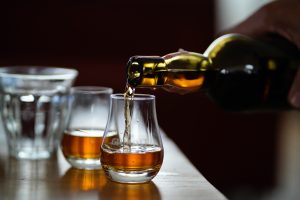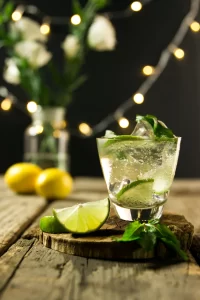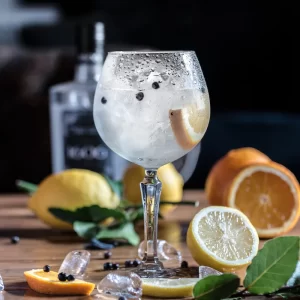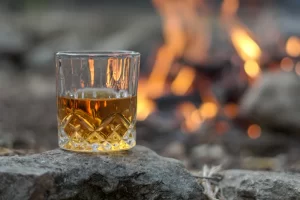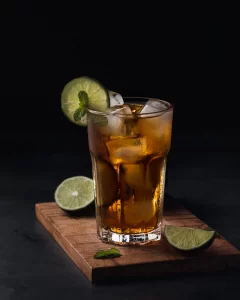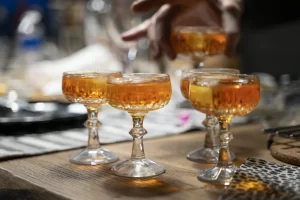New York Liquor Laws And Regulations
The laws around alcohol in New York are specific to the manufacturing, purchasing, selling, serving, and consumption of alcohol in the state of New York. In combination with local and federal laws, as well as vendor policies, the alcohol laws of New York determine many things, such as:
- The legal drinking age.
- Limit set for drinking under the influence.
- Requirements for a liquor license.
- Training of servers.
So, what is there to know about New York and the liquor laws and regulations, and how does this affect those who wish to distill or sell alcohol in the state?
New York State Liquor Authority
The New York State Liquor Authority and the Division of Alcoholic Beverage Control were both established under state law in 1934 to control and regulate the distribution and manufacturing of alcoholic beverages in the state to promote temperance in consumption.
The NYSLA is also authorized by statute to determine whether public convenience and advantage will be promoted by licenses to traffic alcohol and to carry out the decrease or increase of premises licensed in a location.
Consumption On Premises
In New York, there are only four hours from Monday through Saturday during which alcohol cannot be served, and these hours are from 4:00 am until 8:00 am. On Sundays, this is 4:00 am until 10:00 am.
While unusual this law was brought in to accommodate the nightlife of New York City and the late-night workers across the state.
Some areas upstate will retain the closing time of 4:00 am, although some counties can set an earlier time for ‘last call’.
B.Y.O.B Policies
NYSLA does not allow establishments to accept any patrons to B.Y.O.B should an establishment lack a license or permit to sell alcohol. The only exception is if an establishment has less than 20 seats.
However, the NYSLA still does not have the authorization to take any direct actions against establishments that are not SLA licensed unless they are in the process of an application or should apply for a liquor license in the future.
Off-Premises Consumption
The only establishments which can obtain a license to sell liquor for consumption off-premises are liquor stores. Some grocery stores and drug stores can obtain licenses to sell beer, or beer and wine products, such as coolers, but not wine itself.
Minors who visit a liquor store also need to be with an adult at all times, and violations can lead to managers or owners being charged with second-degree unlawful dealing with a minor.
Until the mid-00s, beer sales before noon on Sundays off-premises were prohibited statewide. Changes came in that counties can now adjust hours for sales prohibition from 3-8 am on Sundays to any time from midnight and noon, and can even allow sales of beer 24 hours a day for every other day except Sundays.
The change in law also impacted liquor stores, which could not open on a Sunday before, but now can as long as it is after noon, and in 2022 another change was made that they can open on Christmas should they wish to do so.
New York law also requires that every license for selling spirits and wine in retail for consumption off-premises should be held by one individual who lives within a few miles of the store, holding no other licenses like such in the state.
This was a law introduced to prevent liquor store chains from doing business in New York.
However, some proprietors can open additional stores in family member names while maintaining total store control. This is not only limited to families, however, but Global Group and Premier Group in western New York are also an example of this.
Both of these businesses have more than one location but each of their locations is individually owned and operated.
Distillery Regulations In New York
 If you are a liquor manufacturer or if you rectify alcoholic beverages in the state of New York, you have to be licensed by the SLA, as well as have a distilled spirit plan permit through the Federal Alcohol and Tobacco Tax and Trade Bureau.
If you are a liquor manufacturer or if you rectify alcoholic beverages in the state of New York, you have to be licensed by the SLA, as well as have a distilled spirit plan permit through the Federal Alcohol and Tobacco Tax and Trade Bureau.
Disqualifies
The SLA licensing is easy enough to get for those who run distilleries, however, there are five categories of people who cannot hold an SLA license in New York.
- Any person who has been convicted of any type of felony, as well as the promotion or permission of prostitution, or has made sales of liquor with no alcoholic beverage license will be disqualified from holding an SLA liquor license.
- Any person under the age of 21 cannot hold a liquor license.
- Any person who is not a United State citizen, or an alien admitted to the United States for permanent lawful residence, or a citizen of a reciprocal trade nation cannot hold an SLA liquor license.
- Any person who has had their SLA alcoholic beverage license revoked for any viable cause in the last 2 years cannot hold an SLA liquor license.
- Any person who is a police official or officer cannot hold an SLA liquor license.
Tied House Law
There is also a law known as “tied house law” which prevents any person who holds any indirect or direct interest in a retail establishment that sells alcoholic beverages, in New York, another state, or internationally, from holding a distiller’s license in New York.
This also applies to those who seek any other manufacturing or wholesaling licenses as well.
Distillery Ownership/ Tenancy Requirements
To be able to be licensed as a distiller in New York state, it is critical that you actually produce liquor, or rectify and have your functional facility. At the very least you need to have a tenancy at the facility of another where the distillation or rectification happens.
Alternating Proprietorship
Tenant manufacturing, also known as alternating proprietorship is permissible in New York state. As such two or more licenses share the same rights, facility, and responsibilities concerning the premises.
Each manufacturer needs to produce the annual minimum amount of product at this facility. Under such circumstances overhead can be reduced and costs shared.
Fees
A distiller’s license allows you to produce liquor and rectify with no cap on production volume, and no requirements concerning ingredients. Distillers can sell any liquor, the initial application cost is $50,800, which covers a license for 36 months.
Following this is a Class A-1 license which is the same as above with a 75,000 gallon per annum limit. The cost is $1,450 for a license for 36 months.
These are the most common distillery licenses in New York.
Overall
New York State has some of the most agreeable laws regarding liquor licensing and regulations.
This is probably thanks to it being such a powerhouse in the US, with New York City driving a lot of the relative decisions.
